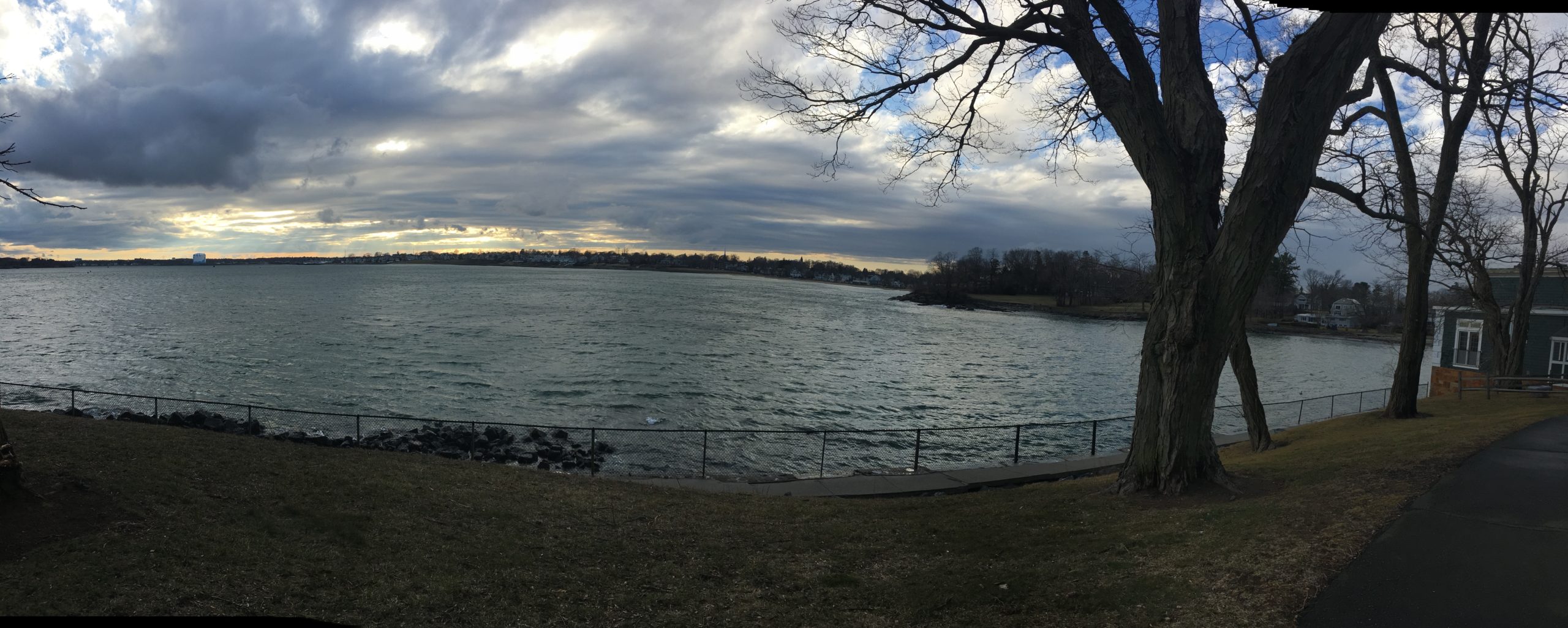Above: Lynch Park, March 13th 2020
By Nola Minogue ’21
Seven years ago, a wide eyed, pigtail-sporting fourth grader watched intently as Change is Simple, Dodge Street’s environmental nonprofit, displayed colorful diagrams of recycling and reusing for her class to see. “What’s the most important of all of these?” the presenters asked. “Reducing. Recycling and reusing are important, but reducing is the most.”
Seven years later, that fourth grader, now a junior at Beverly High School, for the first time in her life, in any of her classmates’ lives, is watching weeks of quarantine slip past her, like a bar of soap onto the bathroom floor.
Travel has come to a screeching halt. Traffic has shrunk. With the fear of empty shelves at our local supermarkets, we’re making sure no food goes to waste. There are so many variables up in the air.
Interesting, isn’t it? For decades, cutting down on fossil fuel use, emitting carbon dioxide from travel and carbon monoxide from food waste has seemed like a far fetched goal well beyond the world’s reach. And yet we’re doing it. Could this be nature taking back the world?
Whether it is nature taking back the world, or not, the virus has wreaked havoc on the globe. There have been over 50,000 deaths worldwide- including over 89 in the Bay State. No one deserves that fate.
But we have to ask ourselves- why weren’t we doing all this all along? Why weren’t we treating climate change like it is- a crisis that determines the future of civilization. We’ve known about the effects of manmade climate change for over a hundred years now, yet coronavirus gained within a month. It always seemed impossible for the world to mobilize at such a speed and force. But we’ve done it before in times of war and other crises. When we recognized threats in Europe, we sacrificed neutrality and isolationism to enforce democracy and decrease threats to freedom at home. Twice. What gave George W. Bush the power to send 177,194 troops to invade Iraq in 2003? 9/11. America’s talent of responding to a national crisis gets the job done- albeit not always the best job, but one that does invoke change and a public outcry.
The spark the coronavirus has lit has done everything we’ve been instructed to do for years. Limiting car use. Reducing food waste. Restricting airplane travel. Appreciating the outdoors and the nature around us. Cutting down on energy costs by turning off the lights.
Not all of us will live to see the long term effects of climate change, but my children will. What am I to say to them in twenty years, when our rainforests have been obliterated, our coral reefs decayed, when the 41,415 species currently labeled as endangered have gone extinct? What am I to say to them when their AP US history exams tell of the year 2020, when the environment claimed a win for the first time in 200 years? The long essay question would most likely be this; Evaluate the extent to which the coronavirus aided the environment and reduction of manmade climate change effects in the United States between the years 2020 and 2025.
Generation Z, the generation continuously mocked by older generations for being addicted to technology, is well aware that we are going to have to clean up the mess left by past generations. It’s not an insult; it’s a fact. Everything we do today has long term consequences. Think of the movements which have happened in the last few years. March for Our Lives. That was Generation Z. Students strike for climate change. A Swedish girl I share a birth year with organized it. Vote16. Students here in Beverly rallied for the chance to have their voices heard in municipal elections, only to be shot down by council members. Young people are the future- maybe we should start being treated like it.
This pandemic will end, one way or another. There is a future beyond this. I hope to see my high school graduation be at Hurd Stadium in a year, the stands full of proud parents and family members.
While the pandemic will end, the threat of climate change will remain- and maybe it will finally be time we see that as formidable a threat than any war, any pandemic, any election. There’s something beyond tomorrow.



